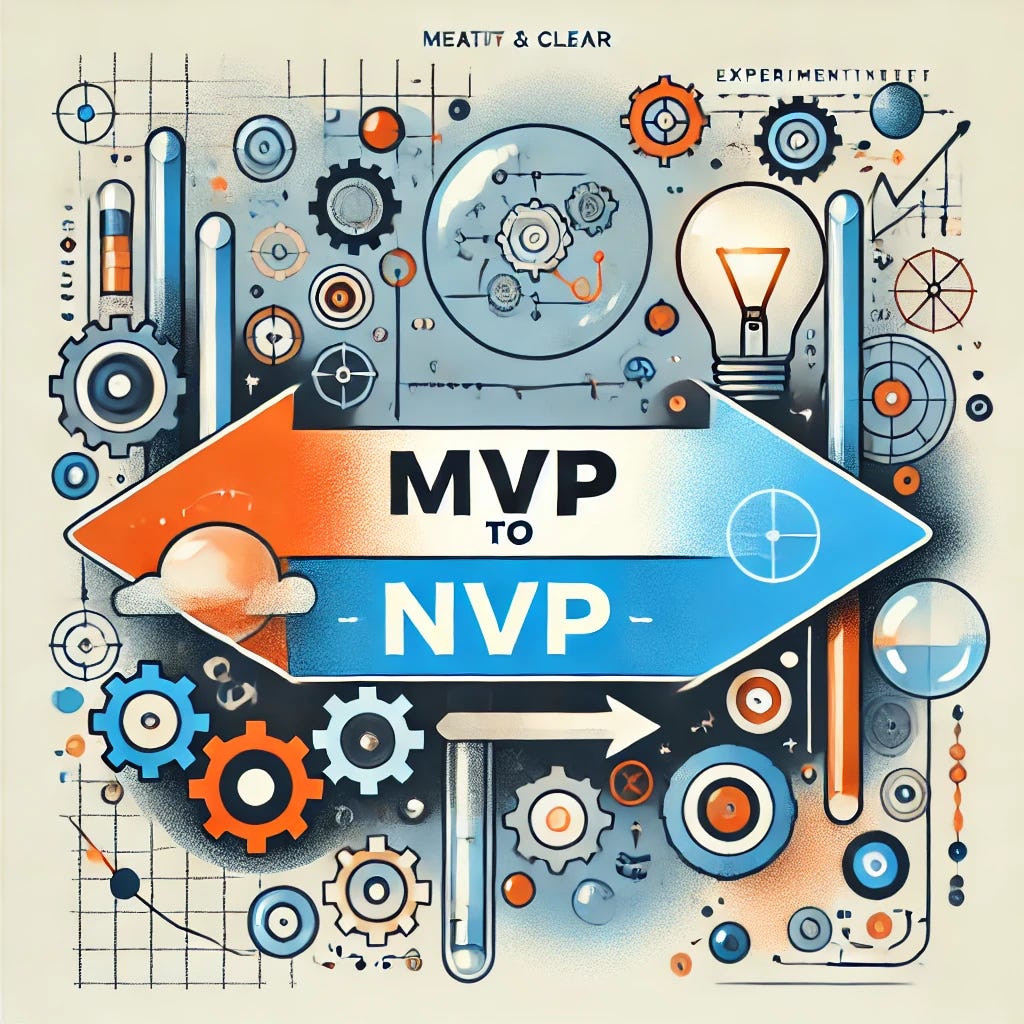Building The Machine 21: MVP to NVP
Everyone talks about a Minimum Viable Product, but never about Non-Viable Products
🌊 Thanks for being here. I am Eric Friedman and I share my thoughts about Building The Machine: those that are creating flywheels to make startups grow. This is a collection of what I am writing, reading, and thinking. I hope you enjoy it.
MVP to NVP✍️
Building a minimum viable product is a great way to go from talking to potential customer to solve their pain with the least amount of product that is viable. To me this level of experimentation is critical - you can ask, build, ship, and transact fast. The last part is important to me because if there is not a value exchange at the end then you do not really have a customer you have a user. This can be fine with certain products and services but my idea of a slow-burn-startup is always about driving revenue.
But what happens when it doesn’t work?
I am guilty my self of not cutting early enough, falling for the sunk cost fallacy of working on something for so long. Kicking myself for not launching earlier, and then hoping that the next iteration will make a difference.
“Hope is not a strategy”
^^I often say the above, and of course rarely take my own advice. The last chapter of a project is usually filled with changes that has the team or individual thinking it will save the day. There is a personal attachment to what you build and a psychological barrier to letting things go. My quote about is a stark reminder that its not about hoping it will work, its about making something people want.
Charlie Munger always talks about the power of inversion and the idea that “you must always invert.”
It is not enough to think about difficult problems one way. You need to think about them forwards and backward. Inversion often forces you to uncover hidden beliefs about the problem you are trying to solve. “Indeed,” says Munger, “many problems can’t be solved forward.”
So turning this idea of failure around is perhaps the strongest breakthrough to the psychological barrier I have found. Thinking about the experiment as an NVP: Non-Viable Product.
This takes away some of the sting of something “failing”, “not working”, or even in the event you have publicly claimed some grandiose “this is the thing that will change the world” out there. It’s ok to have things that do not pan out.
It’s incredibly helpful to read, listen, and watch all the stories about how things go well and what people have done to succeed. I love this as well and even interview people myself on my show Building The Machine.
Like with most things I write about, this is a reminder to myself and permission to take this advice.
Experiment more, fail faster, and create something valuable.
What I am reading 📖
1️⃣ Active Patience - “the act of knowing what you are looking for, and doing nothing until you find it.” Good reminder for investing, temperament, or just allowing boredom into your life.
2️⃣ On Writing Better - An incredible, and I mean epic, compendium of the process of writing a book by Nat Eliason who is coming out with his book Crypto Confidential soon. Worth a read for his story, but also for anyone that wants to one day write a book (like me!)
3️⃣ Bundle: I am looking into video editing tools to make my life editing video clips easier and faster and here are 3 tools I recently dug into: Vidyo.ai, Opus.pro, and Vizard.ai
Celebrate your wins 🏆
Putting out more unvarnished thoughts and opinions here.
Getting better at doing less better (e.g. Focus)

